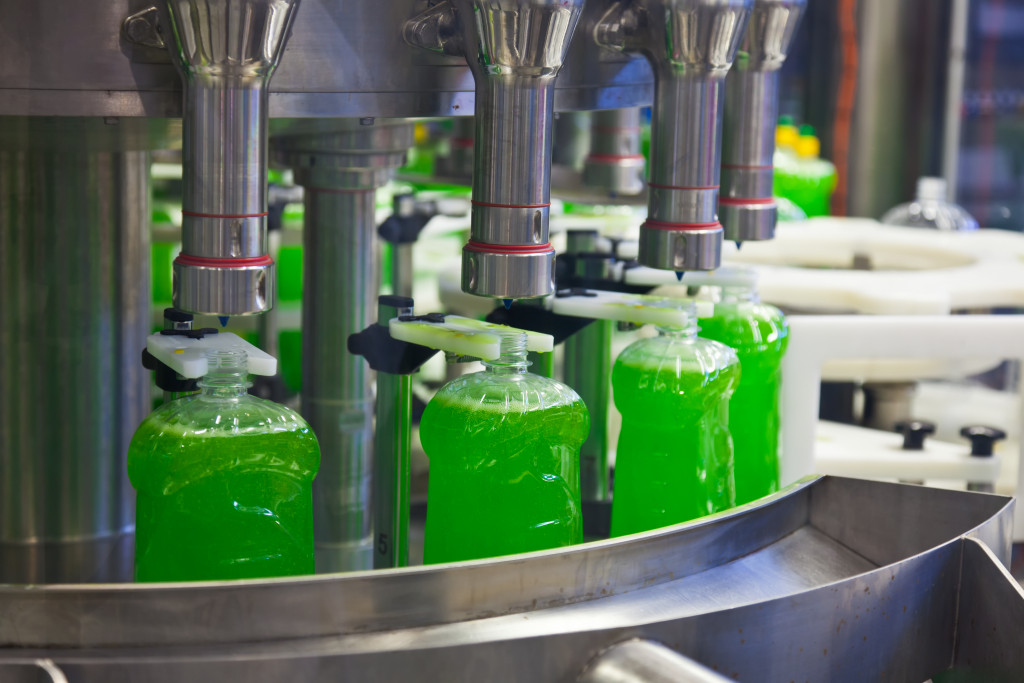Businesses often have many internal processes that the average person never sees. These processes need to happen to ensure that the company is attaining its objectives. One of the most extensive processes that we never get to see is the company’s production line.
The products that we use and consume did not magically come out of nowhere. These products often undergo a long process, referred to as the production line or assembly line. A production line is a series of procedures done linearly to create a finished product. These products are then shipped off to different distribution centers and warehouses for people to buy. Of course, a production line can differ based on the type of business.
For instance, kitchens in restaurants and fast food stores also follow a series of steps to assemble their food. The methods are different, and they do not use machines. But it is still considered a production line because they follow a series of steps to create a product.
Of course, most businesses that produce hundreds of products at a time use machines in their factories. Many rely on purely electrical sources to power their machines. But others also use pneumatic systems that use compressed air to make the mechanical movements possible.
Air is directed from the atmosphere through a compressor and then controlled through pneumatic valves as it travels through pipes. These systems are cost-effective and durable. Apart from that, these systems do not rely on electricity. This means it won’t consume too much energy.
Why We Have a Production Line
A good production line is vital for every business that needs to produce many products at a time. A solid production line makes things easier for a company to create its products. This can save businesses plenty of time and effort.
Automation
For one, a production line is most likely automated. This means that it requires little to no human involvement. Automating the process involves machines and computer programming.
An automatic production process can help businesses save money on labor costs. All they have to do is maintain the systems and ensure that everything is working well. These savings can help them redirect their funding to other business needs.
Despite the automation, someone still needs to operate these machines. With that, humans and machines need to work together to ensure that the process is smooth. These also need to be regularly maintained to ensure that there are no delays in production.

Efficiency
A production line is also a bridge towards increased efficiency. A good production line can produce hundreds of finished products in a short amount of time. This is efficiency at its best.
This can make it easier for businesses to keep up with the demand. Apart from that, it also saves them more time. A good production line can help enterprises maximize their time and resources to hit their highest productivity rate possible.
Consistency
A well-maintained production line can also help businesses gain consistency over their products. Products that need to be mass-produced should have the same quality as the other ones.
Consistency ensures that every customer is getting the same product. Having consistent products can also help them create a brand identity. This makes sure that the products can be distinguished from the rest of the competition.
Quality Control
Creating consistent products is never enough. These products need to be of good quality too. A production line can help businesses control the quality of their products.
The products undergo a linear and calculated process. This means that the output is also calculated. Having an automated production process can help businesses spot products that are not of quality.
Having an expected output means it is easier for them to spot faulty and blemished results. They can then take out these defective finished products to ensure that they do not get sold. This part of the process may need some human intervention, as humans can be more meticulous.
The Need for Regular Maintenance
Despite their capabilities, machines in the production line must be maintained regularly. Any damage to these machines can be costly for businesses. If these machines refuse to work correctly, it will disrupt the production line.
This means that the products will not as be as good as they should be. They may have to stop production altogether. It would be a waste of time and resources to continue a production line that creates defective products.
Conclusion
A good production line makes money for businesses. But of course, these businesses should know the responsibility that they have over these production lines. An automated process means less human supervision.
This can compromise the quality of the products. With that, businesses should find a way to create a good production line that still makes high-quality products for consumers to enjoy. This won’t be easy. But it is also not impossible.
